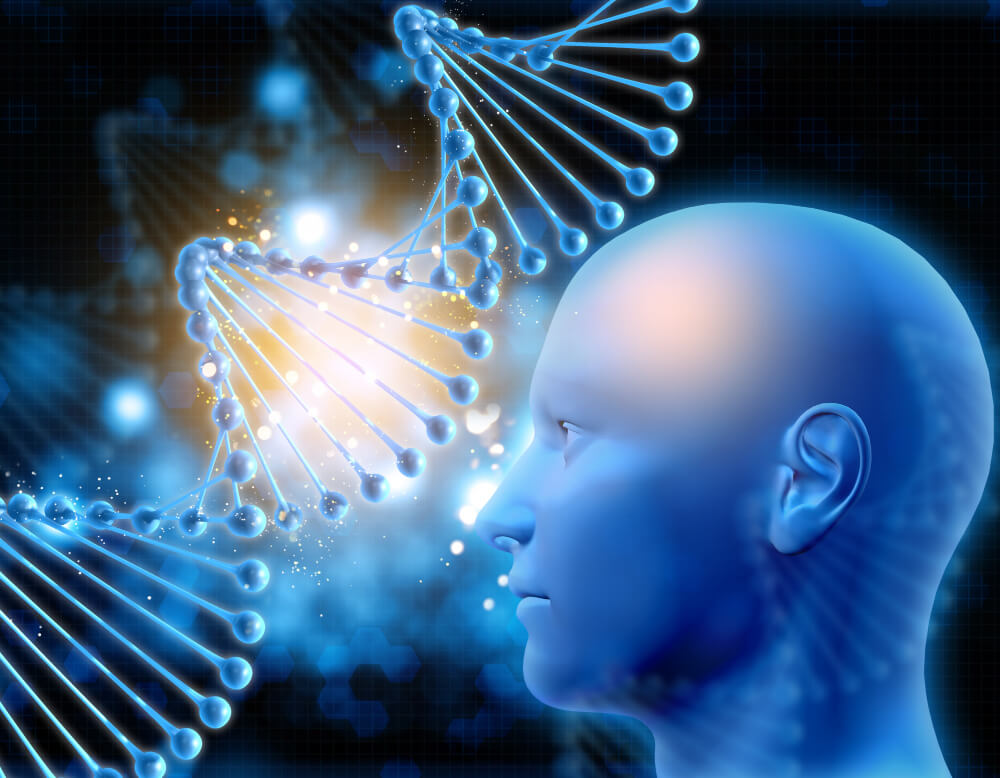Is there a loved one in your family dealing with Alzheimer’s disease? Are you worried about the possibility of getting affected by the condition?
The exact cause of Alzheimer’s disease is still unknown. In order to understand the real cause of the disease and it’s connection with our genetics, we have to understand it from the roots.
So, Let’s embark on a journey to find the deep relationship between Alzheimer’s disease and genetics.
Insights into Alzheimer’s Disease
Alzheimer’s disease is the most common form of Dementia that occurs due to age-related alterations in the brain, genetics, environmental and lifestyle factors. According to a study on alzheimer’s patients, about 1 in 9 elderly people ageing 65 and older has Alzheimer’s disease. This is a critical situation and the patient needs proper care to overcome the suffering.
5 Stages of Alzheimer’s Disease
The 5 stages of Alzheimer are:
- Preclinical Alzheimer’s disease
- Mild Cognitive Impairment
- Mild Dementia
- Moderate Dementia
- Severe Dementia
Symptoms of Alzheimer’s disease
- Memory loss
- Impaired judgment
- Taking longer to accomplish daily tasks
- Confusion
- Repeating things
- Misplacing items frequently
- Increased anxiety
- Aggression
- Withdrawal from social activities
- Difficulty organizing thoughts
- Changes in Sleep Patterns
Signs of Severe Alzheimer’s disease
- Unable To Communicate
- Weight Loss
- Seizures
- Physical Decline
- Increased Sleeping Pattern
- Hallucination
- Delusion
- Paranoia
Factors That Increase the Risk Of Developing Alzheimer’s Condition
- Age: Age plays an important factor in increasing the risk of Alzheimer’s disease. The early onset initiates as you age and reach 40.
- Family History: Your family history and genetical configuration can also be a factor to increase the risk of developing Alzheimer.
- Down’s Syndrome: People with Down’s syndrome are more likely to develop this disease. A study shows that 30% of people with down syndrome get Alzheimer in their 50s and 50% in their 60s.
- Head Injuries: People with severe head injuries are at higher risk of developing Alzheimer’s disease. It involves loss of consciousness, which may cause the disease.
- Heart Health: Health problems such as high blood pressure, stroke, and diabetes increase the risk of developing Alzheimer’s disease.
The Role of Genetics
A single gene doesn’t cause Alzheimer’s disease. But, it is influenced by multiple genes, environmental, and lifestyle factors. The mutations in Presenilin 1 (PSEN1), Presenilin 2 (PSEN2), and Amyloid precursor protein (APP) increase or reduce the risk of Alzheimer’s that run within families. Deterministic genes are estimated to cause less than 1% of Alzheimer’s cases.
Reducing your risk of Developing Alzheimer’s Disease
A combination of lifestyle modifications is vital for preventing the risk of developing Alzheimer’s disease in an individual. Take a look at the proactive measures to promote your overall well-being.
- Manage High Blood Pressure and Sugar Levels: Managing high blood pressure and blood sugar reduces the risk of developing Alzheimer’s disease. Keep track of the levels and closely work with the healthcare provider to manage high blood pressure and sugar levels.
- Maintaining a Healthy Weight: Beyond appearances, obesity can have a significant impact on your cardiovascular health and the blood flow to your brain. These factors increase the risk of cognitive decline associated with Alzheimer’s disease. Keep a close watch on your weight as a preventive measure for reducing the risk of getting Alzheimer’s Disease.
- Prioritizing Quality Sleep: Consider sleep as a form of rejuvenation for your brain. Getting an uninterrupted 7-8 hours of restful sleep is essential for your mental well-being, as sleep disorders can elevate the risk of Alzheimer’s. So, restorative sleep is a pivotal element in reducing that risk.
- Staying Active: Engaging in regular physical exercise offers benefits beyond maintaining a healthy heart and weight. It is a cornerstone in reducing the risk of Alzheimer’s disease and also a great way to support your mental health. Whether you prefer aerobic or non-aerobic activities, both enhance blood flow to the brain and supply the oxygen and nutrients for optimal brain function.
- Embracing a Nutrient-Rich Diet: Your diet affects not only your body but also your brain. Opting for nutrient-rich diets, antioxidants, omega-3 fatty acids, and essential minerals can profoundly impact brain health. These dietary elements offer a range of advantages that help reduce the risk of age-related cognitive decline and neurodegenerative diseases like Alzheimer’s.
- Moderating Alcohol Consumption: Indulging in a glass of wine or beer can be pleasurable, but excessive alcohol consumption can expose your brain to harmful chemicals, which may potentially elevate the risk of Alzheimer’s disease. It’s prudent to savor your preferred beverages in moderation to safeguard your brain health while maintaining your overall well-being.
Conclusion
Genetics itself does not guarantee the development of Alzheimer’s disease in an individual. However, multifactorial conditions such as environmental and lifestyle components also play a role in the development of Alzheimer’s disease. Considering proactive measures and getting in touch with healthcare professionals reduces the risk of developing Alzheimer’s in an individual.
Hope this article helps you get insights into whether Alzheimer’s Disease is genetic or not.





